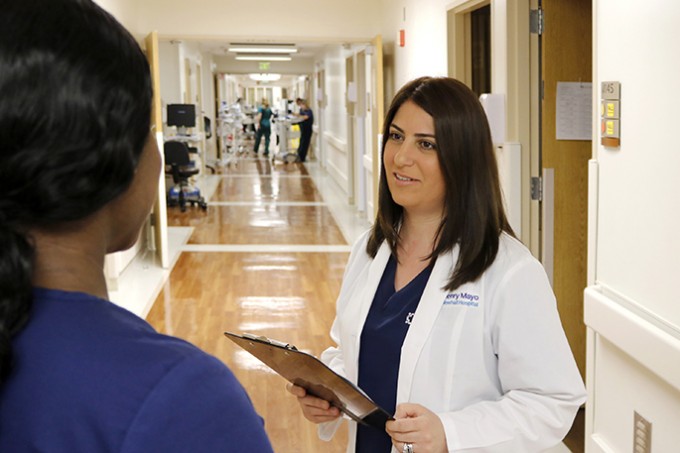My Specialty
Clinical Navigator, Babasi Maradkel, Henry Mayo
A new role that combines leadership, mentorship and education

Benyta Babasi Maradkel, RN, BSN, PHN
Clinical Navigator
Henry Mayo Newhall Hospital, Valencia
Please tell us about the arc of your nursing career.
I completed my BSN at Azusa Pacific University in 2009. I did my last clinical rotation at Keck Medical Center of USC, where I precepted in a medical-surgical ICU. I knew I had found my passion, so after graduation, I applied for the RN Versant program at Keck Medical Center and soon after began working in the medical-surgical ICU.
When I moved to Santa Clarita after seven great years in the ICU, I felt it was time to leave the bedside, so I started pursuing leadership roles. Henry Mayo had an opening for a wonderful position that combined leadership and education — the best of both worlds for me. I had worked as a phlebotomist at Henry Mayo back in 2006 and still had great memories of the friendly and professional community environment there. Better yet, it was only 5 miles away from my new house.
So, in March 2017, I became a clinical navigator here. I have a passion for leadership, so one year ago, I also started the MSN program at Chamberlain College of Nursing, in the executive leadership track.
What are the responsibilities of a clinical navigator?
I am responsible for the staff’s professional practice. I do a great deal of bedside and department in-service teaching, clinical practice mentoring and staff professional development as well as assisting with the integration of evidence-based practice into nurses’ daily routine. I’m also responsible for ongoing and annual staff competency validation.
Additionally, I’m involved with oversight, support and transition for new hires and new-graduate RNs. I help with clinical ladder oversight and policy development, reviews and recommendations. I closely monitor our quality measures and assist staff in reaching our organization’s strategic goals.
Beyond that, I’m involved with program management. For example, I currently co-lead our organization’s journey towards ANCC Pathway to Excellence recognition and lead the implementation of the ARCC model as our evidence-based practice model.
What populations of patients do you generally work with?
We have four different telemetry units. The patient populations include, but are not limited to, congestive heart failure, stock, oncology and chest observation patients. However, unlike program navigators, I don’t do direct patient care. My role is helping staff care for patients and being there as a mentor to guide our staff.












